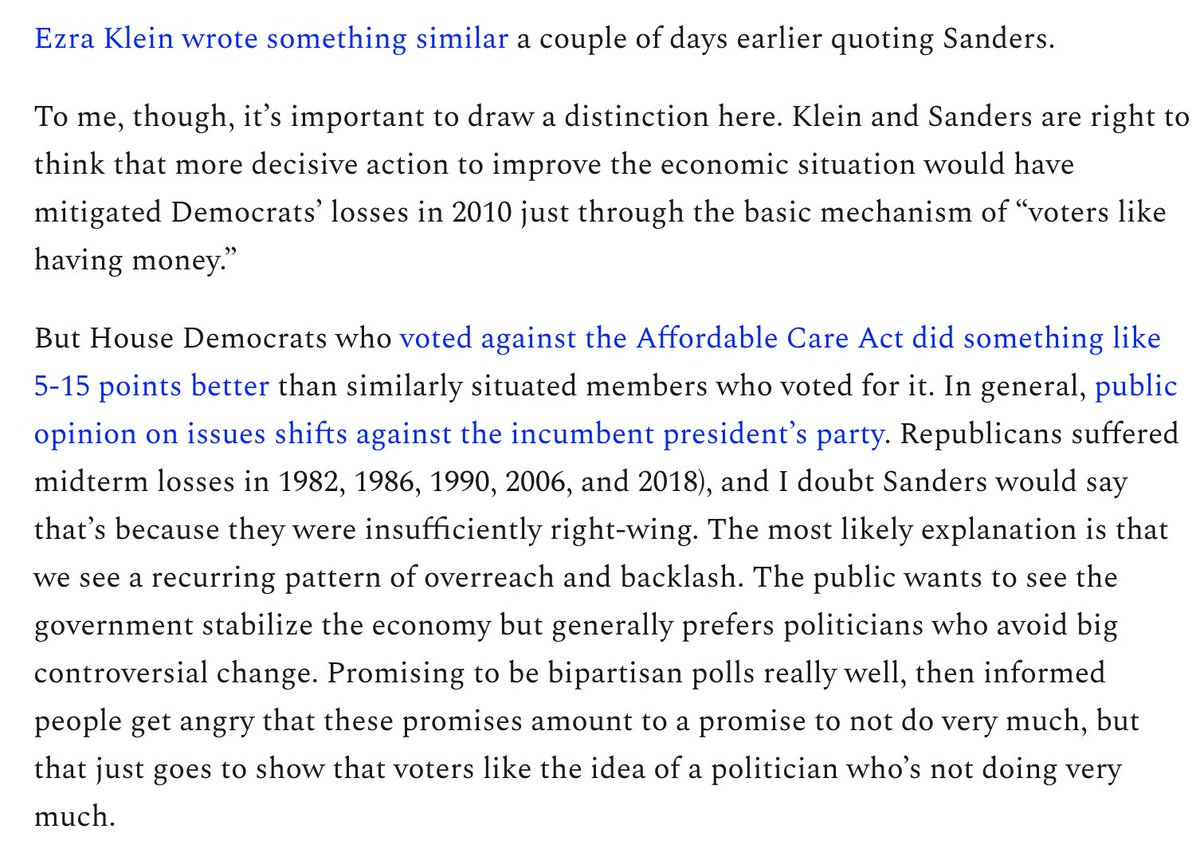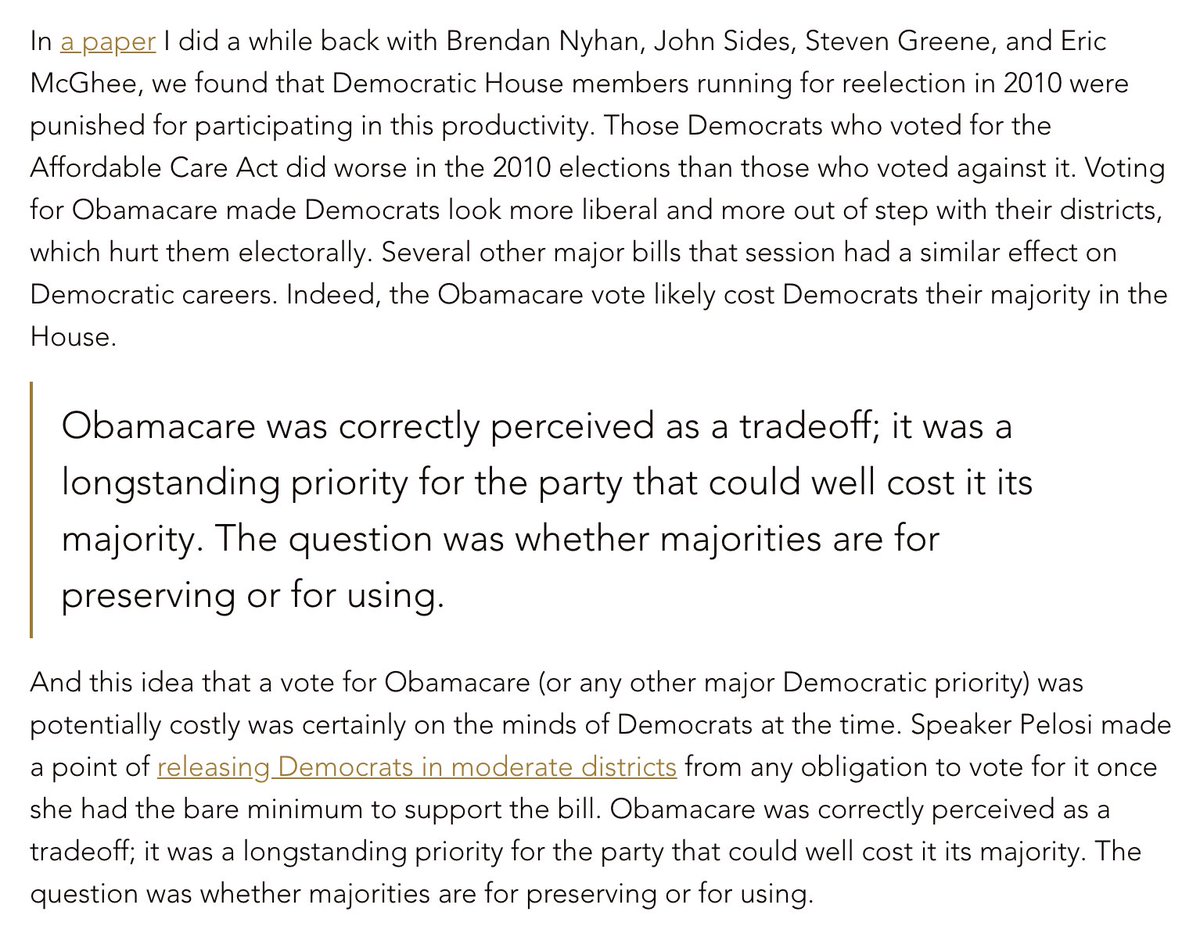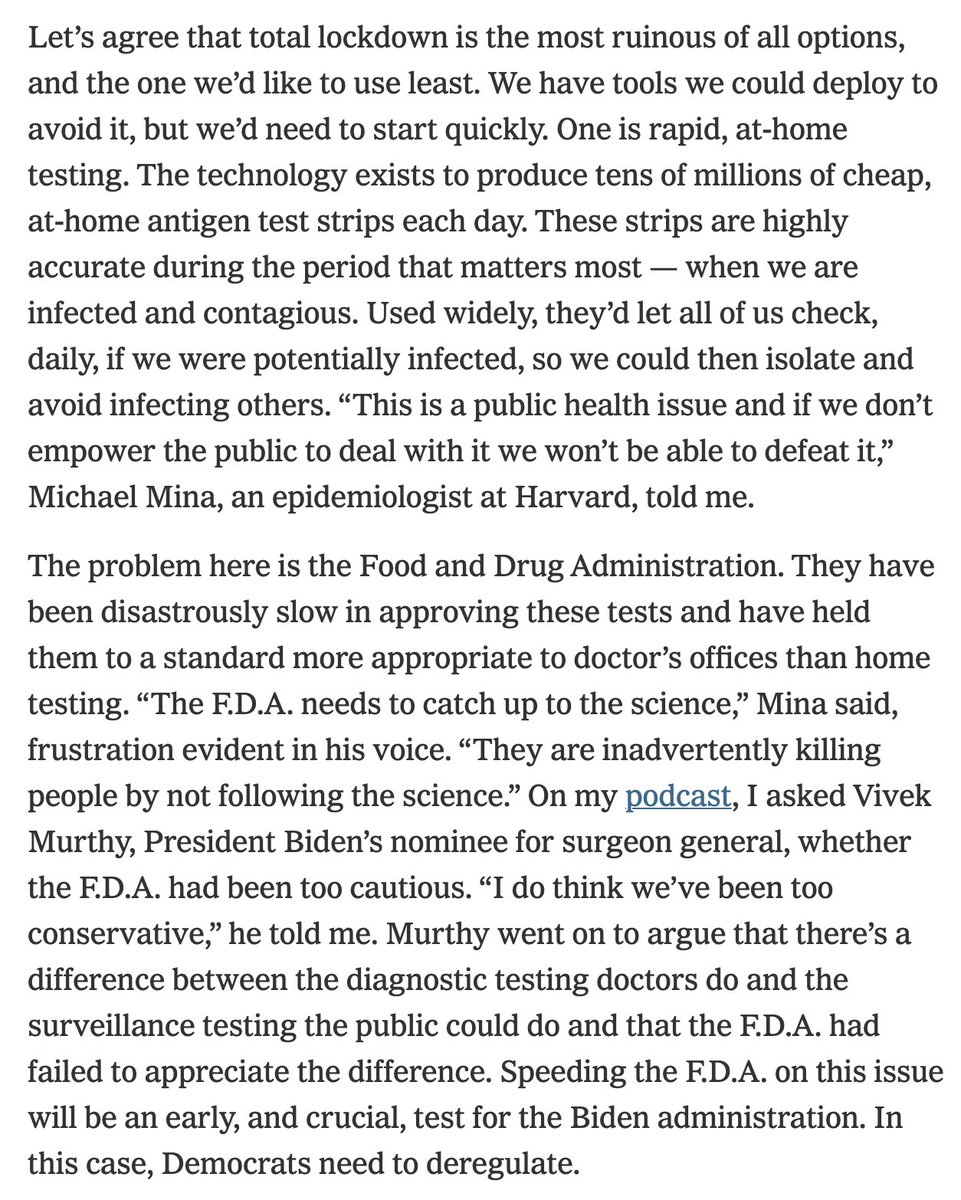
This is a good @mattyglesias post about techno-politics but I want to quibble with the part of it that’s about my essay on the policy feedback loops you can build by Just Helping People Fast. Matt writes: slowboring.com/p/you-cant-bla… 

I want to be clear here: I’m saying that the Affordable Care act was, from a political perspective, badly designed, and that *a different health care plan* might’ve led to a better Dem performance in 2010. But these arguments don't grapple with that.
To @smotus’s point, Pelosi released those House Democrats at the end, not the beginning. Having covered the beginning of this, I can tell you a lot of those Democrats thought a bipartisan health care bill would be great politics for them!
But they didn’t get that.
But they didn’t get that.
This is key. The ACA was built on the political theory that:
1. Bipartisan policy is easier to pass — and more popular once passed.
2. Working off of the Heritage Foundation/Romney template could get you a bipartisan health bill.
1 was probably right. 2 was utterly wrong.
1. Bipartisan policy is easier to pass — and more popular once passed.
2. Working off of the Heritage Foundation/Romney template could get you a bipartisan health bill.
1 was probably right. 2 was utterly wrong.
Given that 2 was wrong, my counterfactual is this: What if Dems had done something like drop Medicare eligibility to 50 and expand Medicaid eligibility up to, say, 250% of poverty. (Or pick your simple, quick health policy.)
I think that could’ve passed through reconciliation in 2009 and been implemented in 2010. If you don't, imagine something else that could've passed that way, and been implemented at speed.
Would Democrats have performed better in the midterms under that scenario? I can’t prove it, but I think so.
(Dems also would've performed better if the political theory behind the ACA had panned out, but it didn't!)
(Dems also would've performed better if the political theory behind the ACA had panned out, but it didn't!)
(Someone will pop in and say that moderate Senate Democrats wouldn’t have voted for that plan in 2009 and they are right! That is why I am trying to convince Senate Democrats to think differently about this going forward.)
To put this differently, Dem policymaking has, for decades, been operating under pre-polarization rules. Complexity is often a function of dealmaking inside broad, ideological coalitions. It can be worth it if you get the coalition. But these days, you don’t.
Instead, you get the worst of both worlds: the complexity you added to try to make the deal, plus attacks on that complexity by the people you were trying to make a deal with.
Chuck Grassley told Dems he’d support the individual mandate then slammed it as unconstitutional!
Chuck Grassley told Dems he’d support the individual mandate then slammed it as unconstitutional!
So as I say in the piece: policy needs to speak for itself, and speak clearly. At times, that will lead to worse policy. It will sometimes lead to less-expansive policy, so you can move quicker. But bad politics leads to much worse policy, long-term. nytimes.com/2021/01/21/opi…
This is, in recent decades, an untried strategy. Perhaps it would fail. To tag Matt’s big theory of politics, it is unlikely a coalition with enough power to pass stuff aggressively could discipline itself against also passing a bunch of unpopular stuff its activist class wanted.
But I want to stand up here for the idea that we haven’t collapsed into a nihilistic politics where nothing matters.
It is hard for policy to break through into people’s lives. But not impossible. Obamacare actually does help Democrats in elections now! So did $2k checks in Georgia.
Go faster, go bigger, go simpler. At least try.
Go faster, go bigger, go simpler. At least try.
One last ACA point: I covered that bill closely. I supported it then, I support it now. But it was designed under the ideological constraints and theories of its moment in a way people now forget.
Its immediate political failure needs to be appreciated, precisely so those ideological constraints and theories are different next time, and the bill can be better designed. What moderate Dems think is good for them is a very important constraint on policy design.
• • •
Missing some Tweet in this thread? You can try to
force a refresh





